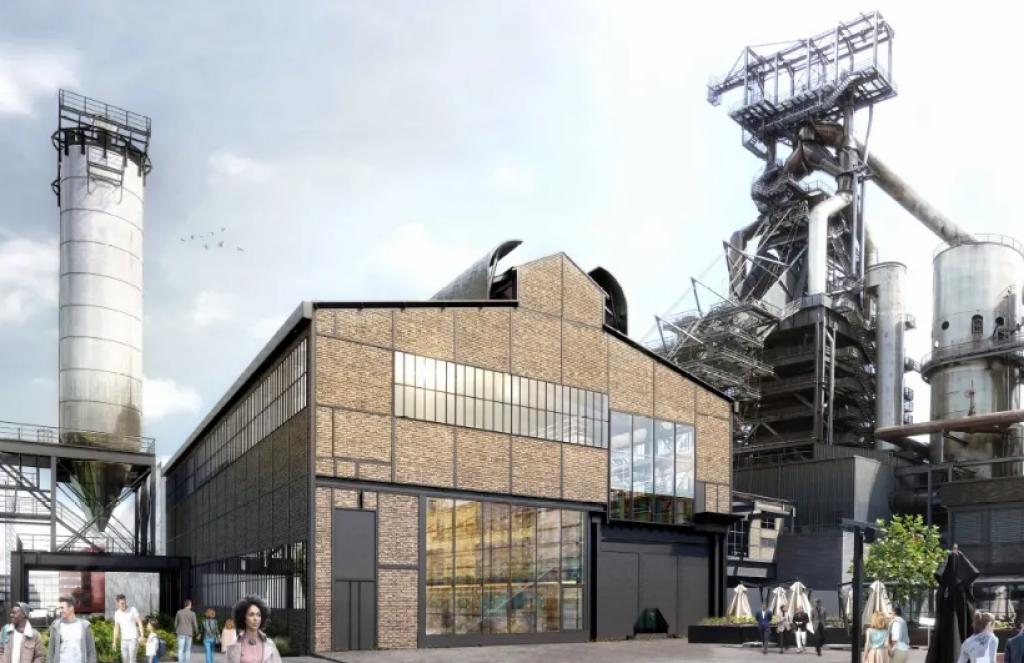Thessaloniki gets ready for its metro launch in November
The underground rapid transit lines have been under construction for almost two decades due to various project delays
 TheMayor.EU logo
TheMayor.EU logo 
The Möllerei warehouse, built in 1910 will be the location of the main event , Source: Fonds-Belval via Esch2022
Luxembourg’s Deputy Prime Minister and Minister of Culture handed the keys to two re-vamped ex-industrial sites to the organisers
On 9 February, Luxembourg’s Deputy Prime Minister, François Bausch and the Minister of Culture, Sam Tanson visited the buildings of the Möllerei and the Massenoire. The two buildings were previously part of Esch’s industrial infrastructure and will now serve as centrepieces for ‘Esch2022, European Capital of Culture’.
Bausch and Tanson handed over the keys to the buildings in a symbolic gesture to the organisers, signalling the transition of the spaces into cultural centres.
The team at Esch2022 is getting ready to kick off this year’s European Capital of Culture celebrations on 26 February. The event mainly focuses on bridging gaps between spaces and times, thus it includes a lot of defunct industrial spaces, that have been converted to galleries and concert halls, in a meta-exploration of the relationship between people and places.
Esch-sur-Alzette was a major industrial centre in Luxembourg throughout the 20th century. The Möllerei was built in 1910 and was used to store ore and coke until it closed down in 1997 when the last blast furnace in the area stopped working.
It was listed as a national monument in the year 2000 and conservation efforts started in 2005. Furthermore, it holds the university library Maison du livre, also known as the Luxembourg Learning Centre − opened in September 2018.
In 2022, the Möllerei will hold the main event of ‘Esch2022’, called ‘Digital Spaces’, focusing on exhibitions and light experiments.
The Massenoire, on the other hand, was commissioned in 1965 and once housed the manufacturing equipment that serviced the blast furnaces. Very little has been done to change the building’s interior, which will function as an adaptable, multipurpose exhibition and information spot.

The underground rapid transit lines have been under construction for almost two decades due to various project delays

Now you can get your wine in Talence by paying directly in Bitcoin

That’s because the state has to spend money on updating the railway infrastructure rather than subsidizing the cost of the popular pass

Rethinking renewable energy sources for the urban landscape

The examples, compiled by Beyond Fossil Fuels, can inform and inspire communities and entrepreneurs that still feel trepidation at the prospect of energy transition

Now you can get your wine in Talence by paying directly in Bitcoin

The 10th European Conference on Sustainable Cities and Towns (ESCT) sets the stage for stronger cooperation between the EU, national and local level to fast track Europe's transition to climate neutrality.

At least, that’s the promise made by the mayor of Paris, Anne Hidalgo

The underground rapid transit lines have been under construction for almost two decades due to various project delays

At least, that’s the promise made by the mayor of Paris, Anne Hidalgo

Hostal de Pinós is located in the geographical centre of the autonomous region

Despite its church-y name, the district has long been known as the hangout spot for the artsy crowds

Urban dwellers across the EU are having a say in making their surroundings friendlier to people and the environment.

Forests in the EU can help green the European construction industry and bolster a continent-wide push for architectural improvements.

Apply by 10 November and do your part for the transformation of European public spaces

An interview with the Mayor of a Polish city that seeks to reinvent itself

An interview with the newly elected ICLEI President and Mayor of Malmö

A conversation with the Mayor of Lisbon about the spirit and dimensions of innovation present in the Portuguese capital














